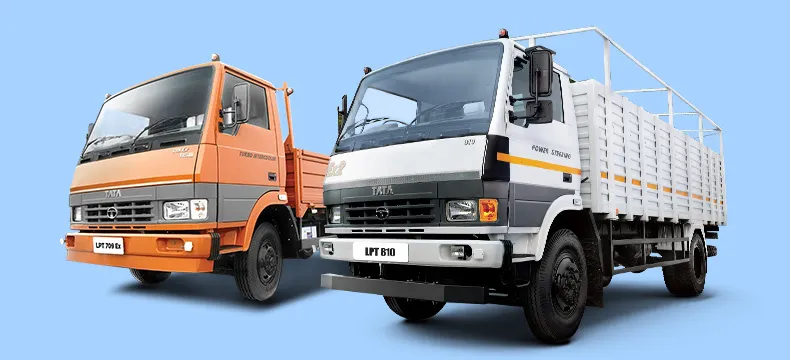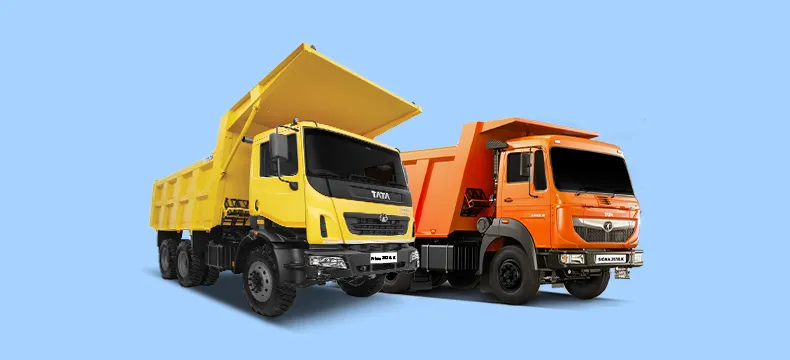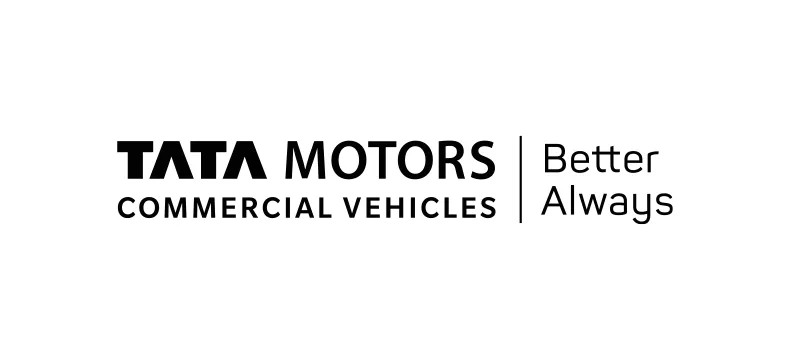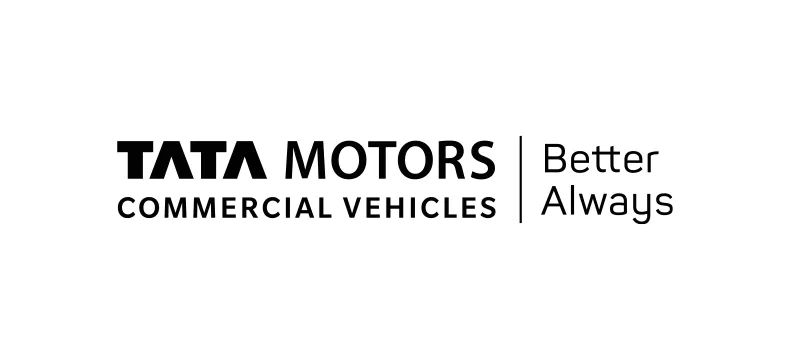29 Dec 2025

Key Factors to Consider When Buying the Best Light Commercial Vehicle
- Tata Motors
- 14 Nov 2024
- COMMERCIAL VEHICLE
In Tanzania’s rapidly expanding industries, light commercial vehicles (LCVs) have become essential for businesses of all sizes. Whether transporting goods across urban areas or delivering products to remote regions, choosing the right vehicle is critical for your business’s success. But with so many options available, how do you select the best light commercial vehicle for sale that meets your needs? In this guide, we’ll explore the key factors you should consider making an informed decision.
Key Considerations Before Buying a Light Commercial Vehicle
When purchasing a light commercial vehicle, several factors come into play, from payload capacity to fuel efficiency. Here's a breakdown of the essential considerations to guide your decision-making process:
1. Payload Capacity and Load Body Size
The payload capacity of an LCV directly impacts how much you can transport at once. For businesses that need to move large quantities of goods, choosing a vehicle with the right payload capacity is crucial. If you’re handling smaller, frequent deliveries in urban areas, a compact vehicle like the Tata LPT 709 may be ideal. The Tata LPT 810 offers greater capacity for heavier loads while still maintaining efficiency.
The load body size is another factor to consider, particularly if transporting goods requires a lot of space. Be sure to match your vehicle’s size to your operational needs, ensuring it can handle the typical load size your business deals with daily.
2. Fuel Efficiency and Running Costs
Fuel efficiency is one of the most important aspects when considering the best light commercial vehicles for your business. Vehicles that offer better mileage reduce running costs, which can significantly impact on your overall profitability. Choosing an LCV with the best mileage can make a huge difference, especially for businesses operating long distances.
Tata Motors’ LCVs are known for their fuel efficiency, which helps keep operational costs manageable. Diesel-powered options like the LPT 709 and LPT 810 are designed to deliver good mileage, making them economical choices for short- and long-haul transport.
3. Safety Features
Safety should be a top priority when choosing a commercial vehicle. The light commercial vehicle safety features to look out for include ABS (Anti-lock Braking System), reinforced cabin structures, and driver-assist features like electronic stability control. These features ensure the safety of the driver and the cargo being transported.
Tata Motors takes safety seriously, equipping their LCVs with advanced features to provide peace of mind. From reinforced chassis to airbags and enhanced braking systems, these light commercial vehicles are designed to minimise risk during transport, particularly on Tanzania’s varied terrains.
4. Reliability and Durability
For businesses in Tanzania, where road conditions vary greatly, a reliable and durable vehicle is essential. Look for LCVs built to withstand the wear and tear of daily use, especially if your operations take you to remote areas with rough roads.
Tata’s best light commercial vehicles are engineered for toughness. The LPT 810, for instance, is built to handle heavy loads over long distances while maintaining performance. Reliability also means fewer breakdowns, leading to less downtime and lower maintenance costs.
5. Ease of Maintenance
The ease with which you can maintain your vehicle should not be overlooked. Routine maintenance and servicing are inevitable, but opting for a vehicle with readily available parts and service centres can save you time and money in the long run. Tata Motors has an extensive network of service centres across Tanzania, ensuring that maintenance is hassle-free and efficient.
6. Cost of Ownership
While the upfront cost is a significant factor, it’s important to consider the total cost of ownership when buying an LCV. This includes the purchase price, running costs, maintenance, and the vehicle’s expected lifespan. Vehicles that are cheaper upfront may cost more in the long term due to higher fuel consumption or frequent repairs.
Tata Motors’ LCVs, such as the LPT 709, are designed for long-term durability and fuel efficiency, making them a cost-effective choice over their lifespan.
7. Customisability
Depending on the nature of your business, you may need a vehicle that can be customised to fit your specific needs. Some LCVs offer the flexibility to be fitted with specialised equipment like refrigeration units or flatbeds, allowing you to transport temperature-sensitive goods or heavy materials.
The Tata LPT 810 offers customisation options that make it adaptable to various industries, such as retail, construction, or agriculture.
Conclusion
When it comes to selecting the best light commercial vehicle for your business in Tanzania, factors such as payload capacity, fuel efficiency, safety, and ease of maintenance are crucial. Tata Motors offers a range of vehicles like the LPT 709 and LPT 810, which are designed to meet the demands of different industries, ensuring the right balance of performance, reliability, and cost-efficiency.
By taking the time to evaluate your specific needs, you can make an informed choice that will benefit your business and ensure smoother operations in the long term.
FAQs
What are the most important specifications when selecting a light commercial vehicle?
The most important specifications include payload capacity, fuel efficiency, and safety features. Additionally, consider the vehicle's durability and the availability of maintenance services.
How does payload capacity influence the choice of a light commercial vehicle for my business needs?
Payload capacity directly affects how much cargo you can transport at once. For businesses that frequently carry heavy or large loads, choosing a vehicle with a higher payload capacity is essential to ensure efficiency and cost-effectiveness.
What role do fuel efficiency and running costs play in the decision-making process for purchasing an LCV?
Fuel efficiency is a key factor in reducing the overall running costs of your vehicle. Choosing an LCV that offers good mileage can significantly reduce fuel expenses, especially if your business involves long-distance transport.
- Tags
Latest Blogs



















